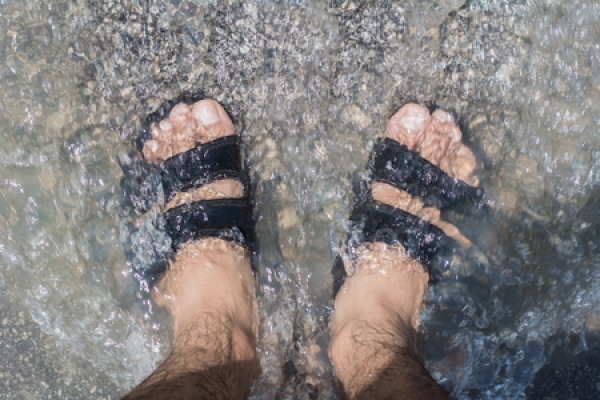Connect With Us
Blogs

Fungal Infection (2)
A common problem that we at Superior Foot & Ankle Care Center treat in our Los Angeles County patients is fungal infections. Conditions such as athlete’s foot and toenail fungus are very uncomfortable and can easily spread to other parts of the body as well as other people. Most fungal infections are spread by direct contact. That means there are several precautions you can take to greatly reduce your risk. Below are seven tips to help you avoid fungal infections.
- Keep your feet covered in public places. Gyms, community pools, nail salons, and seaside restrooms and changing areas all see a heavy amount of barefoot traffic. Wearing flip flops or shower shoes will prevent your feet from coming in contact with surfaces where the fungi have been deposited.
- Wash your feet daily and dry completely. This simple act will go a long way to keeping fungal and other infections away. Take extra care to dry between your toes as this is where athlete’s foot most often starts.
- Make sure socks stay dry. Fungi love dark, moist places—that’s why the inside of your socks and shoes are the perfect breeding ground. If your feet tend to perspire profusely, keep an extra pair of socks with you and change as soon as you notice your feet feel damp.
- Use foot powder. A dusting of an anti-fungal or talcum powder will aid in keeping feet dry throughout the day.
- Don’t share items that touch another person’s feet. Socks, shoes, nail files, clippers, and even towels can be a vehicle to pass on a fungal infection.
- Choose shoes made of breathable materials. This will allow for air circulation around your feet and reduce the amount of moisture trapped in your shoes.
- Alternate your shoes. It’s helpful to allow shoes to air out for a day or two between wearings.
If you are experiencing red, itchy, flaky skin on your feet or nails that are discolored, thickened, and crumbly it’s important that you schedule an appointment at our Long Beach office at (562) 420-9800. Our podiatrists, Dr. Victoria M. Foley and Dr. Constance Ornelas, will examine your feet and prescribe the correct treatment if you have a fungal infection.
Did you know that children have a higher incidence of fungal foot infections like athlete’s foot and toenail fungus than adults? The reason being that children are not as concerned with where they walk and keeping their feet clean. At Superior Foot & Ankle Care Center we’d like to offer the following do’s and don’ts to parents to help prevent children from contracting a fungal foot infection.
Do: make sure your child has a pair of easy, slip-on shoes to wear at the lake, beach, pool, or any other public place that tends to see lots of water and bare feet. These are the types of places where fungal infections love to lurk, and they are transmitted by direct contact. Even a quick trip to the bathroom or the changing area can result in picking up an infection if feet are not covered.
Don’t: let your child sit in damp socks. If your child has been running around and their feet get sweaty, have them change their socks. A child whose feet tend to sweat excessively may benefit from a dusting of talcum powder each morning before putting on socks.
Don’t: allow your children to wear shoes without socks. Bacteria and fungi can grow in the shoes and combine with the sweat from your child’s feet to cause infection and foot odor. It’s also a good idea to alternate footwear so that shoes have a chance to air out in between wearing them.
Do: tell your child not to share flip-flops or other shoes, towels, socks, soap, or other items that touch another child’s foot.
Do: wash your child’s feet every day with warm water and soap. If you notice redness, dry skin, flaking or blisters, or if your child complains of itchy feet, contact our Long Beach office for an appointment by calling: (562) 420-9800. Our podiatrists, Dr. Victoria M. Foley or Dr. Constance Ornelas, will examine your child’s feet and determine if a fungal infection is present.


